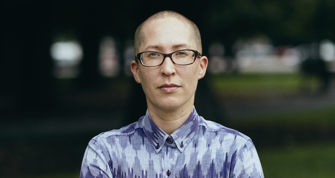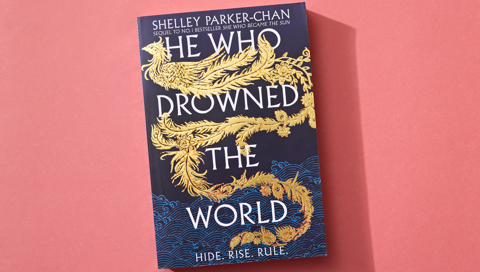Support Sydney Writers' Festival

As May rapidly approaches, we are so excited to welcome you to the Festival and to introduce you to the writers who make it all worthwhile. To awaken your Festival spirit, we're got a series of Q&As to introduce some of the 2024 participants. Get to know them as we discuss their reading, their writing practice and the Festival theme, Take Me Away.
Before becoming a fantasy novelist, Shelley Parker-Chan was an international development adviser who worked on human rights, gender equality and LGBTQ+ rights in Southeast Asia. Since then, their Sunday Times and USA Today bestselling historical fantasy novels have been translated into 15 languages and been awarded the Astounding Award for Best Debut and the British Fantasy Awards for Best Fantasy Novel and Best Newcomer.
Which book would you take to a deserted island?
Any of Olivia Atwater’s charmingly subversive faerie Regency romances. My personal favourite is Ten Thousand Stitches, which involves a servant accidentally falling for her faerie godfather instead of the handsome lord of the house. I read it over and over again during the pandemic.
Is there a book you wish you could read for the first time again?
Tomorrow, and Tomorrow, and Tomorrow by Gabrielle Zevin. I don’t think I’ve ever cried harder at a book.
What inspired your career change from international advisor on human rights, gender equality and LGBTQ+ rights to writing novels?
Trying to bring about positive change in the real world is a painfully slow process. Often it involves more going backwards than forwards, especially on rights issues, and it’s just so frustrating. I longed for the satisfactions and catharsis of fantasy, where a single marginalised person can force the world to make a place for themself and people like them. It never happens that simply or cleanly in real life, but it’s nice to imagine—and to write.
What made you want to write the Radiant Emperor duology?
I went through a period of being obsessed with Chinese and Korean historical TV dramas. They’re ridiculously long, but beyond addictive: every episode is nonstop juicy scheming, blood oaths, revenge, friendships destroyed by betrayal, lovers torn tragically apart. If the ending doesn’t leave you crying so hard you can’t breathe, it’s a flop. I wanted to write a book that felt that intense—a rollercoaster ride of life-or-death action and emotion.
What do you love about writing fantasy?
I love the way fantasy can allow you to tackle intense topics from a slight remove, in a way that makes them more universal. There’s a eunuch character in my books who I wrote to reflect a particular trans masc experience. But he’s not actually a trans man—his identity doesn’t exist in our world—which I feel allows people who don’t resonate with that particular expression of trans experience a freedom to find other ways to identify with the character. I hear from a surprising number of people who loved that character, but had no idea he could be read as trans.
What events are looking forward to attending at the Festival?
Viet Thanh Nguyen’s The Sympathizer blew me away with its nuance, deliberate complication of diaspora identity and sheer brutality. I can’t wait to hear him speak. And Ann Patchett’s two memoir-essay collections, This Is the Story of a Happy Marriage and These Precious Days, delight me each time I read them. I think I love them even more than her (also wonderful) fiction. I’m dying to hear more anecdotes from her life.
